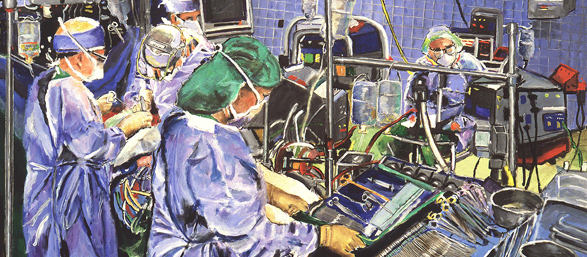

A Life-Changing Breakthrough in Structural Heart.
Heart valve diseases are diagnosed in 1.8% of adults globally, with valve regurgitation a condition that affects a significant number of patients in this area.
Regurgitation happens when the heart’s valves don’t close properly, leading to blood leakages into the atrium that can be fatal. These leakages can also lead to other cardiovascular issues and harm a patient’s quality of life.
In the last 20 years, life-saving innovations have emerged to treat both aortic valve and mitral valve regurgitations – while avoiding conventional open-heart surgery.
Transcatheter Aortic Valve Repair/Implantation (TAVR or TAVI) has been around since 2002 and is becoming the mainstream treatment for the aortic valve. Transcatheter Mitral Valve Repair (TMVR) surfaced more recently, in the last 5 years, and has only a handful of commercially approved devices on the market.
Both spaces are growing and will continue to provide lifesaving treatment for cardiovascular patients in the future.
However, a solution for tricuspid valve regurgitation has been much more elusive, despite the problem being more widespread and overshadowing aortic valve repair.
It’s only now, that a handful of pioneering start-ups have emerged with Transcatheter Tricuspid Valve Repair/Replacement (TTVR) devices to offer an alternative to surgery.
To learn more about this relatively new space, I spoke with four companies that specialise in TTVR.
.jpg)
My conversations began with Dr Lucy O'Keeffe, CEO at the Irish start-up CroíValve (pronounced Cree-Valve, Croí is the Gaelic term for heart).
Lucy is experienced in leading medical device development programs, thanks to her five years at Medtronic and her work with multinationals like ICON and Nypro.
She began by telling me about the origins of the CroíValve device and how the original concept was invented by leading cardiologist, Dr Martin Quinn, to be later developed at Trinity College of Dublin.
Having conducted the first TAVR implant in Ireland, Dr Quinn understood the clinical challenges of structural heart and set out to create a minimally invasive device which repairs the tricuspid valve without requiring surgery.
The CroíValve device, the Duo Coaptation Valve, is used to restore tricuspid valve function atraumatically.
The device is easy to use and safe, leaving the right heart structure untouched. It provides a life changing option for patients that don’t have access to surgery.
In March, CroíValve announced the first successful human use of their device with the surgery performed at St James’ University Hospital in Dublin.
The future looks exciting for the Irish start-up who have already raised €10m of grant and equity funding and expanded their headcount to 16 people. Their next stop is developing clinical data that demonstrates the value of this novel technology to patients.

I also spoke with Tino Quijano, CEO of California-based Navigate Cardiac Structures (NCSI). Tino has a fantastic track record in the cardiovascular start up space and has been instrumental to the success and subsequent acquisition of a range of cardiovascular start-ups.
NCSI turned their attention to TTVR back in 2015, after noticing a decline in funding in TMVR, their original point of focus.
Like other companies in the space, NCSI are developing a catheter-guided atrioventricular valved stent for replacement of a failing tricuspid valve and given the known prevalence and incidence of this condition worldwide, their efforts must be lauded.
Their GATE™ System replaces the function of a patient’s dysfunctional native tricuspid valve with a bio-prosthetic atrioventricular valved stent. It’s been a promising start for NCSI too, as Tino told me that an early trial compassionate use in 31 patients has seen positive results, but that a worldwide trial still needs to take place revalidate and improve the results.
Tino explained to me how the challenge in TTVR, for NCSI, is twofold: to design a proper valved stent and to find the optimal access points and NCSI’s valve seems proper but invested significant resources into identifying the shortest and least invasive path to the tricuspid valve as you traverse the skin.
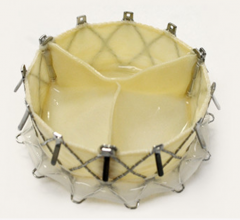
Trial and error is a given, when it comes to producing breakthrough technology, and NCSI’s journey was no different.
The GATE™ is offered in very large sizes to accommodate the dilated TV annulus that will extend in some patients to 56mm or more (the mean is 48mm).
The first GATE™ in Europe, Padova I, was implanted during a in a failing heart transplant’s tricuspid valve after many years of function in 2017. A 52mm valve was implanted through a 2cm incision, which has left the patient with a great quality of life.
Threading a 52mm valve is no easy task, but as the right jugular vein (which is NORMALLY 1-2cm) can dilate with tricuspid regurgitation, it provides a good access point for the short journey ahead. Cardiologists are also adept at accessing the heart through femoral vessels, and NCSI have developed both solutions to satisfy either preference.
We have seen what the GATE™ can do in extremely ill patients, and we feel those in a clinical trial who have not reached that terminal stage, will certainly benefit and possibly return to a good quality of life.
.jpg)
I also discussed Innoventric with its CEO and founder, Amir Danino. He founded the Israeli start-up with partners Rafi Benary and David Planer. They were originally attracted to the market because of the challenge that had proved insurmountable for their predecessors:
We were aware of the tricuspid space for over 15 years. It was frustrating to see so much work going into tricuspid valve replacement, without a single device entering the market. We thought why is that? Why are the best teams failing?
Inspired and determined to complete the task themselves, the three founded Innoventric in 2017 with the aim to bring a new concept and device, the TRILLIUM, to market.
.jpg)
TRILLIUM is a stent graft extending from the SVC to the IVC. It has valves in its middle, right atrial, portion, that constitute a functional replacement to the native regurgitant valve. TRILLIUM avoids major and frequent impediments, such as leaks and migration, and leaves the native valve untouched.
The product has a bare metal stent to provide reliable a-traumatic anchoring and bifurcation blood inflow. It uses radio-opaque markers for accurate positioning in fluoroscopy-based procedures and has multiple valves to allow the required blood inflow while simplifying device positioning. Its sealing skirt ensures a tight seal and allows hepatic vein inflow.
Simplicity is at the heart of everything Innoventric do and their device is no different. It fits a wide range of anatomies, doesn’t leak, doesn’t migrate and instantly reduces venous pressure while increasing cardiac output. The procedure to implant the device is simple too, requiring a 10-minute skin-to-skin procedure that eliminates the need for general anaesthesia and complex echocardiography guidance.
Our device’s procedure is simple and takes under 10 minutes. Other than our own, I don’t know any transcatheter mitral or tricuspid valve repair procedure that takes less than 30 minutes.
The next step is to get TRILLIUM to market. First up, the company will complete its ongoing 15-patient FIH study, then it’s onto a pivotal study for their CE mark which they hope will be achieved within three years.
.png)
Cardiovalve, a spin-off from Valtech Cardio is another start up that’s been innovating in this space since 2017.
I talked to their CEO, Amir Gross, about the Cardiovalve transcatheter system which is intended to replace both regurgitating mitral and tricuspid valves using a transfemoral - transseptal approach.
The Cardiovalve device is a novel bio-prosthesis designed to resolve heart valve (mitral and/or tricuspid) malfunction, implanted using a transcatheter technique.
.jpg)
Physicians deliver Cardiovalve with a catheter, or tube, introduced through the leg vein in the groin area. Once the Cardiovalve is in place, it is expanded and immediately takes over as a new functional valve.
Amir explained to me that their technology is unlike any other in the tricuspid space because of its range of valve sizes.
We’re unique because our technology has 32mm to 55mm valves. No one else has it. Most of the competitors are focused on the 48 mm valve. With the majority of patients requiring valves above 50mm, our ability to offer these larger sizes is very valuable.
The Cardiovalve system is an investigational device, not currently for sale in Europe or the US. It is not CE marked or FDA approved, but it was successfully tested in animals and in the laboratory to confirm its safety and performance.
When all of these technologies come to market, it will be life changing (and potentially lifesaving) for valve regurgitation patients.
At the moment, less than 1% of patients receive surgical treatment for this type of condition and even when patients are fit for surgery, the risks are high, with an operative mortality of between 10% and 35%.
Thanks to these pioneering start-ups, the future for patients suffering from these complex conditions is brighter than ever. As great minds like those I’ve talked about today are coming together to solve these problems, TTVR looks set to follow in TAVI and TMVR’s footsteps and be the next runaway success in structural heart.
If you'd like to chat about this article, any of the technology involved or want to tell me about something I’ve missed, please get in touch at James.Christopher@medical-cm.com. I am also available to talk about recruitment services.
You can find more cardiology content on my consultant page.
Recommended.
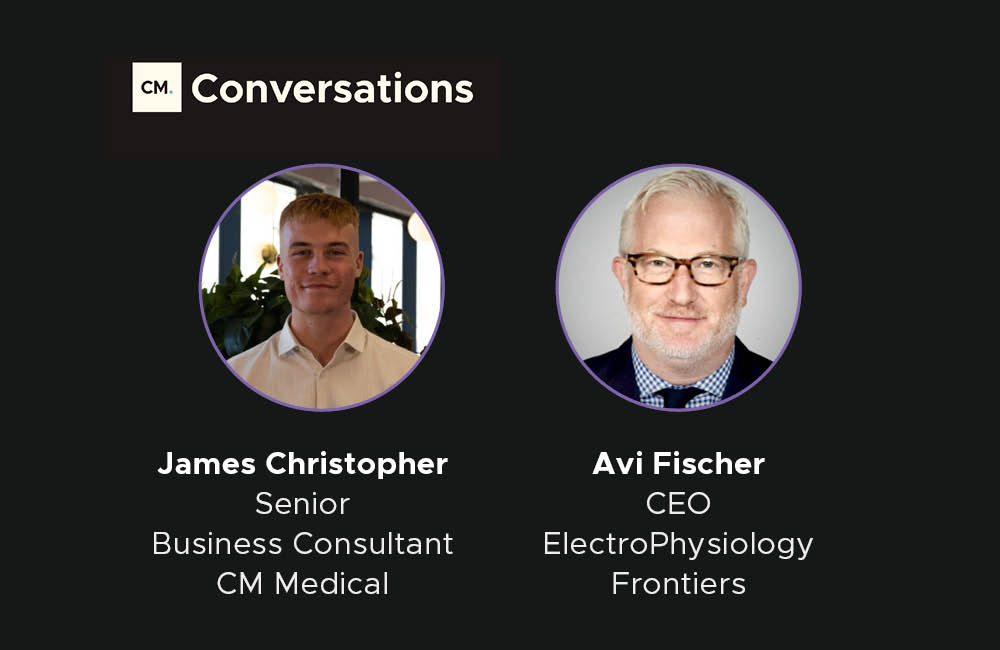
The Future of Catheter Ablations with EP Frontiers CEO, Avi Fischer.
In this episode I talk to ex-physician gone start-up CEO, Avi Fischer, about the future of Catheter Ablations and how EP Frontiers is disrupting the industry. Click to listen.
.jpg)
Can PFA Revolutionise Cardiac Ablations?
With the limited data we have so far, PFA has proven to be safer than other ablation energies and to provide quicker recovery times. But is it ready to revolutionise cardiac ablations? To find out, I spoke to five leaders from start-ups in the space.
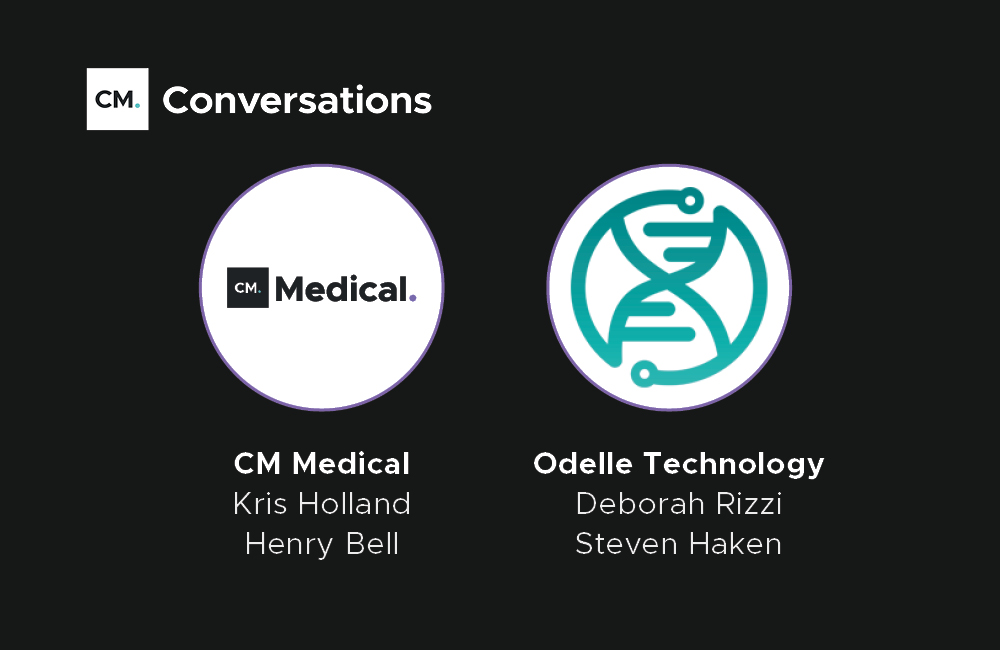
How to Take Your Medical Device to Market.
In this episode, I'm joined by Steven Haken and Deborah Rizzi from market access and reimbursement specialists Odelle Technology to discuss how to take a medical device to market.
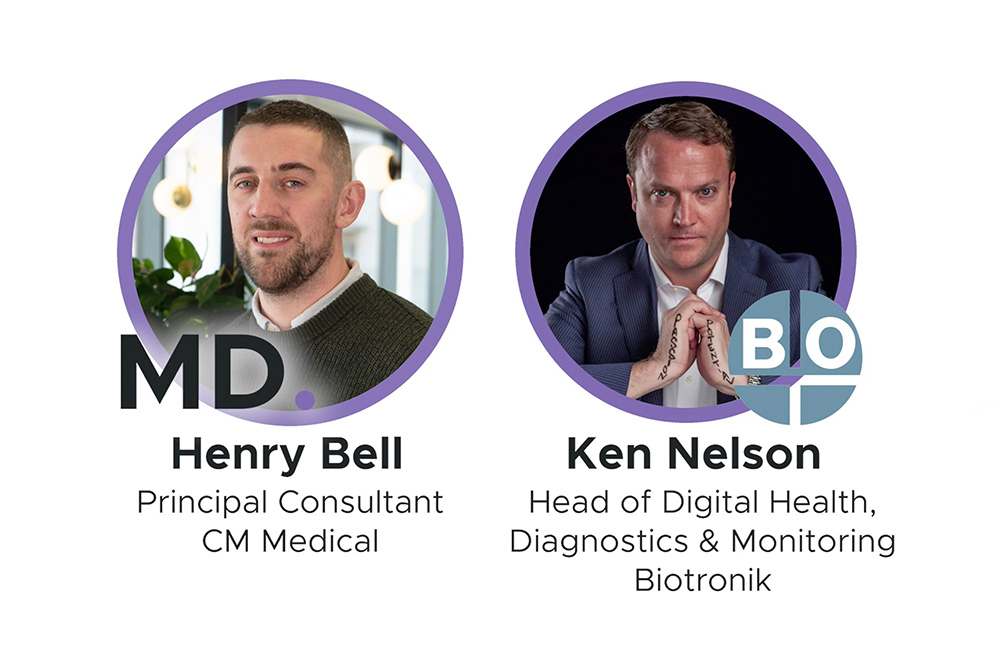
How Much Value is in Your Data?
I caught up with the Head of Digital Health, Diagnostics & Monitoring at Biotronik, Ken Nelson, to talk about the increasing value of data within the space.
Comments.